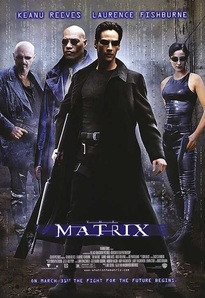 Unsolved mysteries. They fascinate us, and are the stuff of countless TV shows, movies and books. Such was the topic of a book my daughter-in-law gifted me: Dead Mountain: The Untold True Story of the Dyatlov Pass Incident, by Donnie Eichar. I confess this was new to me, and couldn't wait to learn more. It all happened in February, 1959, when nine, young, experienced Russian hikers set out on a arduous winter trek in the Ural Mountains. Just before reaching their destination, all nine died under mysterious circumstances. For reasons unknown, they suddenly fled their tent, half dressed, into subzero weather. Investigators later found the tent had been ripped open from the inside. Several of the bodies were found with blunt force injuries and excessive exposure to radiation. The unanswered question: What made them flee to an almost certain death? Eichar, a documentary film maker from Florida, immerses himself in finding the answer that has eluded researchers for over five decades, and fueled theories ranging from a military cover-up to UFOs. In his quest, he made two trips to Russia, conducts exhaustive interviews and re-traces the steps of the hikers all the way to the place on Dead Mountain where the tent stood. The author does a fine job of assembling the puzzle pieces while painting a vivid picture of life in Russia, and builds toward his conclusions in classic Sherlock Holmes-fashion. In the end, he finds the most plausible answer rooted not in conspiracy theories or aliens, but in the science of sub-sonic sounds. Case closed? Probably not. But it's a fascinating read nonetheless. Time again for a fishing update (I know how you've been on the edge of your seat to know if I've had any successful outings since I reported the last time). The answer is yes, I have. And still trying to figure out exactly what I'm catching. To that last point, my neighbor Barry has been a lifesaver, lending me his copy of "Sport Fish of Florida: 231 Species, Food Values, Methods and Ranges." Armed with my light tackle rod and reel. a bag of shrimp, a bench on the IntraCoastal and the book, I was able to ID this recent catch: So pretty, right? I was positive this must be called something like Golden Sunfish, or a Florida Dazzling Sunburst. Wrong. According to the book, it's a "Porkfish." Now who came up with that one? And what were they thinking? Here's another catch: This one I'm not sure about, although there is some resemblance to a Sheepshead. Here we go with those names again!
Well, that's the report for this time around. The way I figure it, I only have about 226 species to go before I have mastered Florida fishing. (I better get busy!) A real treat this time of year are the flowering "flame trees" that can be found in North Palm neighborhoods, like this one, and throughout South Florida. Called Royal Poinciana trees, they serve as another reminder of the tropical beauty we enjoy. (Photo: NPBL)
 Sometimes you see a headline and just have to stop and read the story. Like today, on The Verge: "Bolivia rejects 'offensive' chicken donation from Bill Gates" They reported billionaire Gates is donating 100,000 chickens to impoverished countries as part of an initiative he calls "Coop Dreams," a partnership with charity Heifer International. "The gift of 100,000 chickens is to be distributed among countries with high poverty levels: mostly nations in sub-Saharan Africa, but also including Bolivia, reports Reuters." The article quotes Gates as saying: "It’s pretty clear to me that just about anyone who’s living in extreme poverty is better off if they have chickens," wrote Gates in a blog post. "In fact, if I were in their shoes, that’s what I would do — I would raise chickens." He says that the animals are easy and inexpensive to raise, empower women ("because chickens are small and stay close to home"), and can help feed children in poor families." But hold on. According to the story, the South American nation already produces 197 million chickens annually, and has the capacity to export 36 million. A government official told reporters that Gates should "inform himself that us Bolivians have a lot of production and do not need any gifted chicks in order to live, we have dignity." I guess Gates will have to peddle his chickens somewhere else. Listen to the Podcast
One question we get from our readers about North Palm Beach Life is, "Where are the ads?" The answer is simple: There aren't any. Don't get us wrong -- revenue is certainly welcome here. But having spent the better part of a career building and running websites for major media companies, I've arrived at this conclusion: There has to be a better way. Here's why: We all know advertising has been part of media for almost as long as media has been around. If it has an audience, it can have a sponsor. As one of my favorite comedians, Robert Klein, once noted: If the first words Neil Armstrong spoke when he took that famous first step on the moon were "Coca-Cola," he would have been "set for seven lifetimes." Everyone knows advertising is how companies pay to print a newspaper or broadcast programming on the airwaves. It picks up the tab so we can enjoy a Free Press (free in the sense the government doesn't control it). It's something the information-consuming public has long accepted as a reasonable trade-off. Then the World Wide Web came along and upset everybody's apple cart. For the media, and many other businesses, it was Disruption with a capital "D" on a massive scale. For media companies, the first order of business was stake a claim to a URL (Uniform Resource Locator) and then launch a website as quickly as possible. Business plan? Nah ... that could come later. For newspapers, web users could read the same content subscribers were paying for, free -- and get it sooner. Huh? With the search engine aggregators posting news links from around the world, and consumers with the new-found power to pick and choose at their discretion -- the news they want, when they want it -- the old media business model got turned on its head. But not to worry -- we'll have ads on our website to make up the difference. Except, as noted many times, print dollars turned into digital dimes. Google and Facebook, with users in the (B)illions, rewrote the media playbook, and now they call the shots. It's all about scale and targeting (the right ads to the right person at the right time). When you have both, you are the King of the Media Hill. Some 20 years after the Web made the scene, some newspapers have backtracked and erected paywalls, charging users to read their content online, a move some pundits call, "too little, too late." The jury is out on that one. But back to the ads. As any web user will tell you, they come at you in all shapes and sizes, and their intrusiveness managed to irritate readers pretty much from the get-go. With the ever-mounting pressure on the bottom line, now publishers pile them on until even at high speed, pages either take forever to load or cause content to jump all over the screen -- or both. And don't you just love it when random music and voices suddenly blare over your computer from a video you didn't want in the first place? Whether surfing on a smartphone or from the desktop, ads dominate. Takeovers, pop-ups, pop-unders, video pre- and post-rolls, sliding billboards, peel-backs, banners, buttons, native ... it's a long list. Again, no argument here: Ads have their place, providing readers content that has value in its own right. A Free Press doesn't come with a Free Lunch. And God knows today we need our newspapers and the role they play more than ever. Maybe it's me, or maybe it's because I've left corporate and have become plain Joe Reader, but the sheer volume and weight of the ads have made going to the websites I frequent all but unusable. Not to mention fueled a stampede toward downloads of Ad Blocker apps and programs, the newest web cottage industry. Recently, The New York Times even floated an idea for a new subscription model that's ad-free, thinking folks might pony up if they could avoid the ads altogether. (Not a new notion, by the way. When we suggested that back in the day at DallasNews.com, it lasted about a hot minute.) All of which is a long-winded answer to, "Why aren't there ads on North Palm Beach Life"? Sure, we know we don't have the scale to draw interest from the Big Boys. We're just a little fish in a big ocean. But regardless, in the seven months since launch, we do have a respectable readership, and could at the least place Google AdSense. We have chosen not to -- at least for now. So what is the business model? Like the newspaper industry 20 years on, we're still figuring it out. Frankly, I like the PBS approach: Invite readers to contribute whatever they choose if they find our site informative and entertaining -- the GoFundMe option (also an idea some news organizations have kicked around). There is also merit in having an overall site sponsor. And done right, native advertising is another option. While we noodle on that, please continue to enjoy your ad-free, fast-loading experience on North Palm Beach Life. There aren't many websites going that route. They can't afford to.  "Elon Musk believes we are probably characters in some advanced civilization's video game" There's a headline that will get your attention. Musk, the Tesla guy, was speaking at a conference this week when the topic came up. Here is the gist of it as reported on Vox Technology: "By far the best moment of Recode's annual Code Conference was when Elon Musk took the stage and explained that though we think we're flesh-and-blood participants in a physical world, we are almost certainly computer-generated entities living inside a more advanced civilization's video game. "Don't believe me? Here's Musk's argument in full: "The strongest argument for us being in a simulation probably is the following. Forty years ago we had pong. Like, two rectangles and a dot. That was what games were. "Now, 40 years later, we have photorealistic, 3D simulations with millions of people playing simultaneously, and it's getting better every year. Soon we'll have virtual reality, augmented reality. "If you assume any rate of improvement at all, then the games will become indistinguishable from reality, even if that rate of advancement drops by a thousand from what it is now. Then you just say, okay, let's imagine it's 10,000 years in the future, which is nothing on the evolutionary scale. "So given that we're clearly on a trajectory to have games that are indistinguishable from reality, and those games could be played on any set-top box or on a PC or whatever, and there would probably be billions of such computers or set-top boxes, it would seem to follow that the odds that we're in base reality is one in billions." The idea that we are living "The Matrix" isn't new, but it has been gaining steam in recent years as more serious scientists and thinkers jump on the bandwagon. Whether it's provable or not is another question, but regardless, it is an intriguing theory. Proponents cite the universe's mathematical underpinnings; how the universe is so fine-tuned for life that just a slight change one way or the other and we wouldn't be here. Or the mystery of life itself, still waiting to be solved. Opponents believe it's just so much nonsense and how can reputable scientists even entertain the notion. It's a good bet the concept has been around in one form or another since the ancient Greeks (doesn't everything trace back to the Greeks?). There's the famous line from Shakespeare's "Hamlet": "There are more things in heaven and earth, Horatio, Than are dreamt of in your philosophy." And what if we are just living out some advanced civilization's idea of entertainment? Somebody get a messaged to them: We don't find the Donald Trump Presidency campaign amusing. And one more thing: Could you please program me buying the winning lottery ticket? Whether Musk and company are right or wrong doesn't change things, does it? Life, simulated or real, will press on. Like, to quote a favorite movie line, "We ain't had breakfast yet." In the end, Churchill said it best: "A riddle, wrapped in a mystery, inside an enigma." |
AboutYes, I know it's spelled like "Jerry." No, I don't know why it's pronounced "Gary." Archives
May 2024
Categories |
- Home
- Cruise/Travel
- Gigi in the 561
- Blogs
- Video
-
Explore
- Snaps >
- Island Destinations
- October Odyssey >
- Pam - Traveling in Style
-
Road Trip!
>
- Road Trip! -- Tucumcari, New Mexico
- Road Trip! -- The Painted Desert
- Road Trip! - Sedona, Arizona
- Road Trip! - Sedona Wineries
- Road Trip! Tonto Natural Bridge State Park
- Road Trip! - Mogollon Rim
- Road Trip! - Verde Canyon Railroad
- Road Trip! - Jerome, Arizona
- Road Trip! - California
- Road Trip! - Palm Springs Celebrity Tour
- Road Trip! - Palm Springs Aerial Tramway
- Road Trip! - Festival in Palm Springs
- Road Trip! - Willcox, Arizona and Apple Annie's Orchard
- Road Trip! Willcox Wineries
- Road Trip! Chiricahua National Monument
- Road Trip! Tombstone, Arizona
- Tombstone, Part Two
- Road Trip! - Epilogue
-
Traveling With Joe
>
- Beartooth Highway
- North Cascades National Park
- A Visit to the Philippines
- Grand Canyon National Park
- Glacier National Park
- Yellowstone National Park
- Hiking in Bear Country
- Crater Lake National Park
- Albuquerque Balloon Fiesta
- The Kerrville Folk Festival
- Building Hope in the Rio Grande Valley
- Yellowstone Camping Tales
-
Unknown Yellowstone
>
- Unknown Yellowstone - Heart Lake
- Unknown Yellowstone - Summit Lake
- Unknown Yellowstone - Shoshone Lake
- Unknown Yellowstone - Grizzly Lake
- Unknown Yellowstone - Riddle Lake
- Unknown Yellowstone - Pelican Cone
- Unknown Yellowstone - Mt. Washburn
- Unknown Yellowstone - Specimen Ridge
- Unknown Yellowstone - Avalanche Peak
- Unknown Yellowstone - Divide Creek
- Contact
- Search
|
© COPYRIGHT 2024 ALL RIGHTS RESERVED.
|





 RSS Feed
RSS Feed
